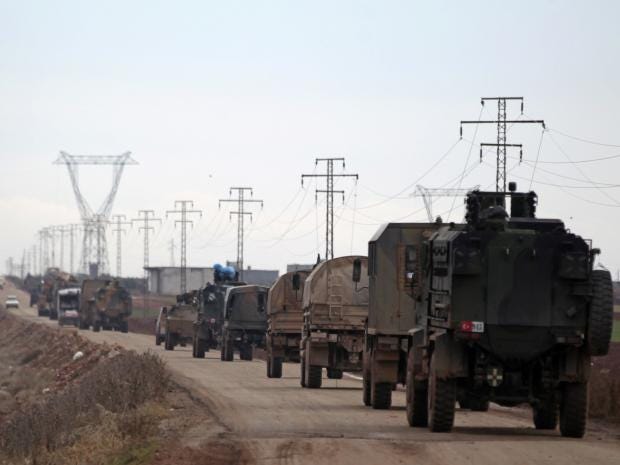[FONT="]Turkey benefited at this week’s peace talks in Astana in Kazakhstan from being one of three foreign powers – the others being Russia and Iran – with ground troops in Syria. It had previously provided crucial aid, sanctuary and a near open border to the Syrian armed opposition. Reinforced by a diplomatic marriages of convenience with both Russia and Iran, Turkey has acquired significant influence over the outcome of the six-year long war in Syria. But the slow military progress at al-Bab shows Turkey’s growing military engagement in Syria is coming at a price – even in its initial phases. [/FONT]
[FONT="]
The fighting in and around al-Bab underlines an important weakness of the plans announced at Astana to bolster the current shaky Syrian ceasefire announced on 30 December. The two most powerful rebel military movements, Isis and Jabhat Fateh al-Sham, formerly al-Nusra, al-Qaeda’s branch in Syria, are not included in the ceasefire and have no reason to abide by its terms. On the contrary, Nusra has launched an offensive in west Aleppo province to eliminate rebel groups sympathetic to peace talks and a ceasefire.
[/FONT]
[FONT="]Significantly, Isis is showing that, despite claims by the Iraqi and Syrian governments that it is facing imminent defeat, it is still capable of fighting on multiple fronts. It holds west Mosul in Iraq with a population of 750,000, recaptured Palmyra in Syria in mid-December and has repeatedly attacked the Syrian government enclave in the provincial capital of Deir Ezzor over the last ten days. The Russian air force was compelled to launch intense air strikes to help the Syrian army hold the city.[/FONT]






